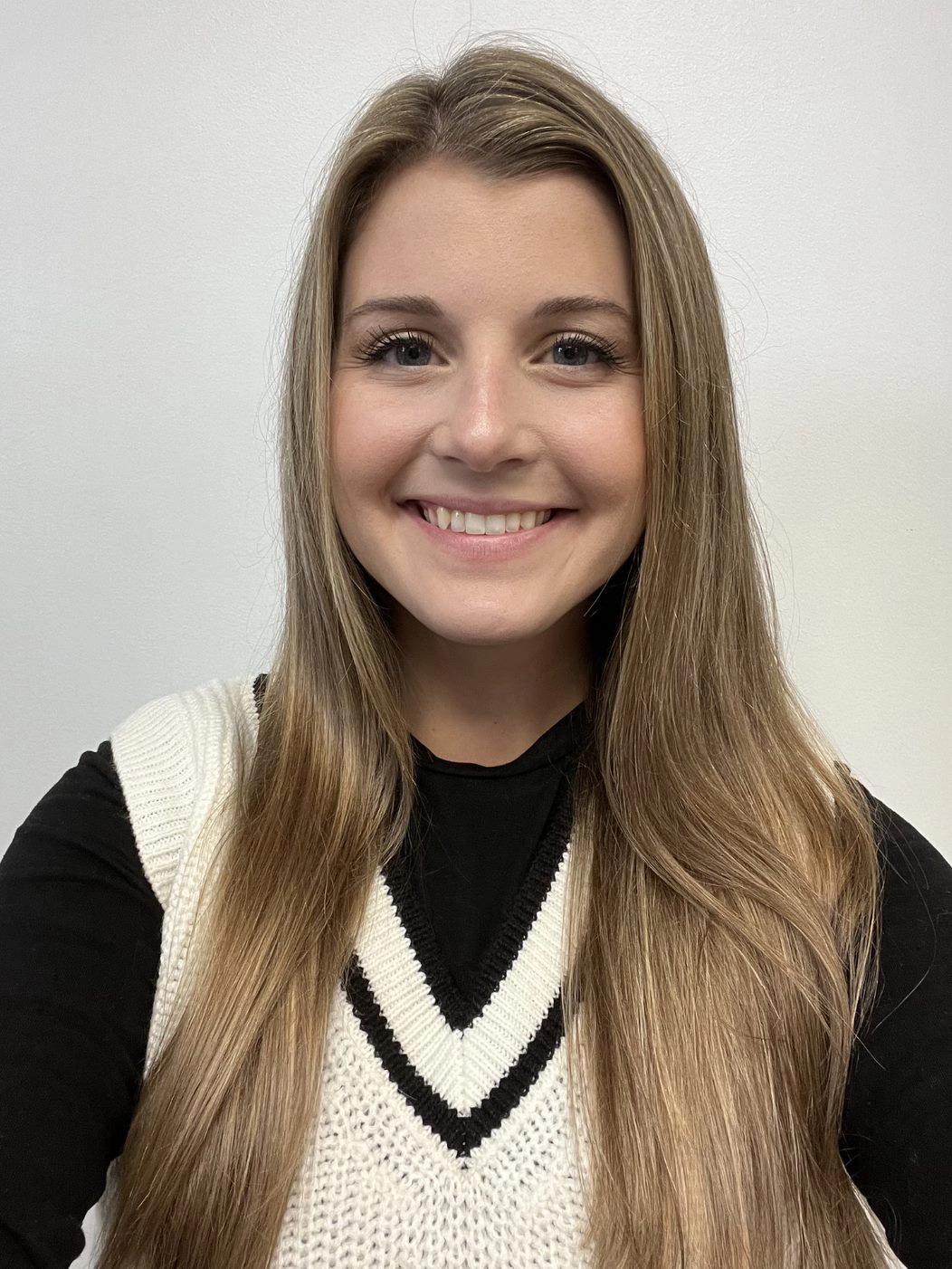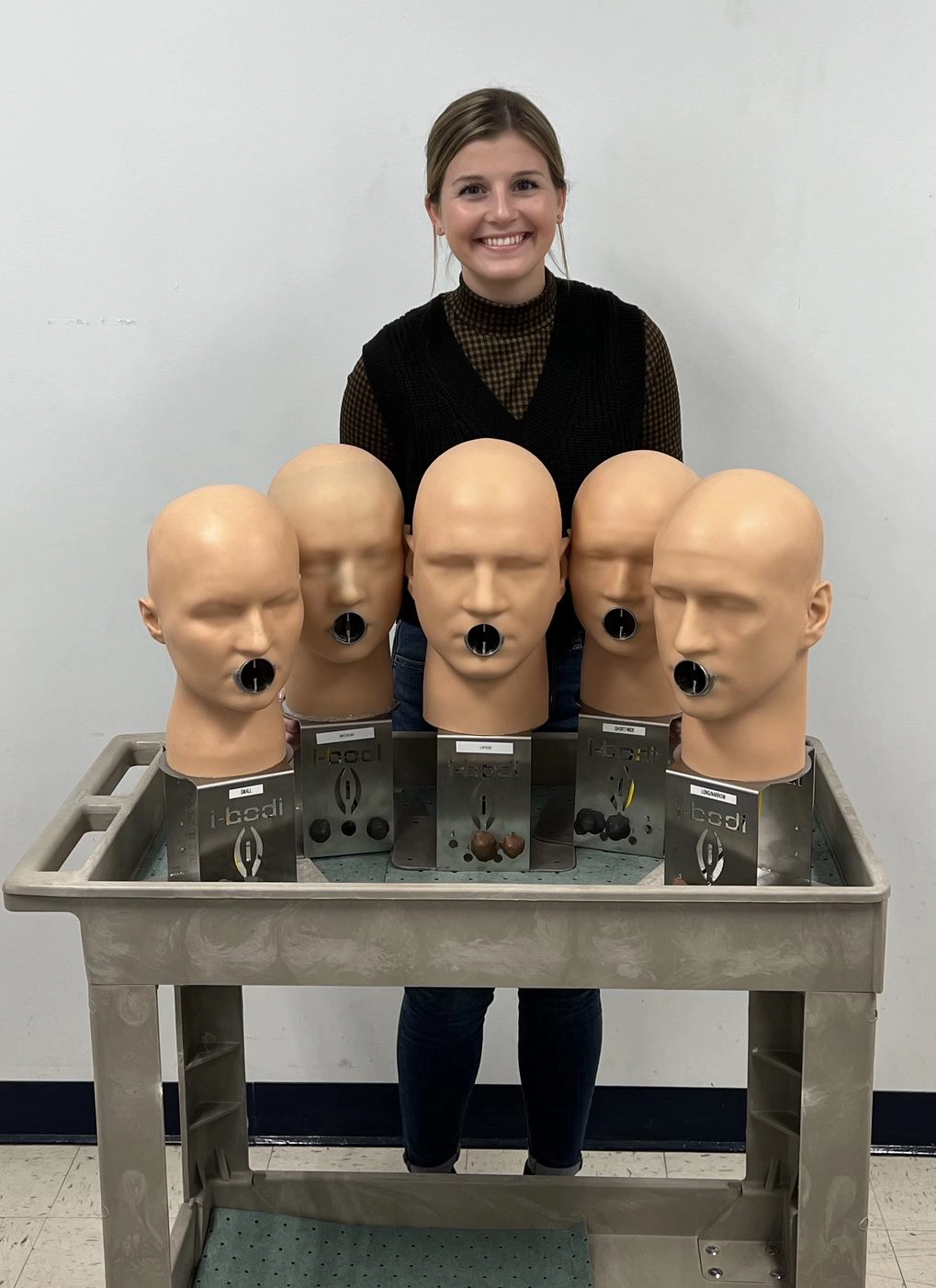Fellow supported personal protective equipment testing during coronavirus pandemic Evaluation fellow improves public health programs at CDC
Meet Brooke Vollmer
Science came naturally to Brooke Vollmer; she has known since grade school that she wanted to help other people. Her childhood interest in biology, chemistry, anatomy and physiology fueled her desire to pursue an education in science, technology, engineering and mathematics (STEM). She received her bachelor of science degree in biology from the University of Pittsburgh at Johnstown.

Brooke Vollmer discovered a passion for public safety during her acadmic career. As an Oak Ridge Institute for Science and Education (ORISE) fellow with the Centers for Disease Control and Prevention’s (CDC) Research Branch, Vollmer is using that passion to improve occupational safety and health. (Photo Credit: Brooke Vollmer)
“This interest in the sciences allowed me to excel throughout my college experience and gain knowledge that felt meaningful to me,” Vollmer said. “And with this mindset, I came to the realization that I wanted to focus my future STEM career on addressing the needs and protection of others.”
Today, she does just that as a National Institute for Occupational Safety and Health (NIOSH) fellow. Here, she researches with the National Personal Protective Technology Laboratory (NPPL) in Pittsburgh, Pa., on the testing of personal protective equipment used by first responders and the general population.
Vollmer was recently rewarded for her involvement, becoming the inaugural winner of the ORISE Undergraduate and Post-Baccalaureate Future of Science Award.
“I was so excited to be nominated by my mentor. To be selected and to win it was a whole other level. It’s exciting and feels like I’ve been doing the right thing throughout my career,” Vollmer said.
But all scientists must start somewhere. After graduation, she accepted a fellowship position at NIOSH. She made many valuable connections at NIOSH, so after gaining experience under her initial fellowship, NIOSH directed her towards the ORISE. With ORISE, Vollmer could continue her rewarding research, and so she joined her mentor, Michael S. Bergman, in the CDC Research Participation Program at NIOSH NPPL.
The CDC Research Participation Programs are educational and training programs designed to provide students, recent graduates and university faculty opportunities to participate in project-specific CDC research, current public health research and developmental activities.
At NPPL, her overall research goal is to protect workers and the general population who rely on respiratory protection to prevent disease and illness.
Early in her fellowship, one of her projects was to help lead an urgent COVID-19 response effort that studied N95 filtering facepiece respirator (FFR) performance. A N95 FFR is a type of respirator designed to filter out at least 95% of fine particles that are breathed through it, including bacteria and viruses. Specifically, Vollmer looked at how effective N95 FFRs performed after they had been decontaminated by outside organizations and sent to NPPTL for evaluation. She led the in-processing of samples when they arrived at the lab, performed various tests on the submitted samples and developed reports on the results. These reports are published on a NPPTL webpage, where anyone can view the results to make decisions on decontamination practices.

Currently, she is evaluating how N95 FFRs being distributed from the U.S. Strategic National Stockpile fit on the complete set of ISO Static Advanced Headforms, shown in the picture above. The results from this research will be used to develop meaningful outputs that could help to inform respirator users on what size N95 FFR would best fit their face.
“This research will impact respiratory protection guidance and recommendations that are followed within the workplace and general public,” says Vollmer. “This research will also provide research findings and data that can contribute to better understanding the importance of respiratory protection and personal protective equipment usage in times of need.”
But developing new N95 FFR guidance doesn’t just improve COVID-19 safety. According to the National Center for Biotechnology Information, N95 respirators are used often by employees whose occupations require them to be exposed to harmful dusts and aerosols. This makes the research imperative to occupational safety and health.
Vollmer presented her team’s discoveries at the International Society for Respiratory Protection’s 20th Conference, and often presents their efforts to leadership and collaborating organizations monthly.
Another project Vollmer is contributing to in collaboration with the Biomedical Advanced Research and Development Authority and the National Institute of Standards and Technology is the “Mask Innovation Challenge,” which is in its final stages.
As an ORISE fellow, Vollmer says that she learns something new every day, and that she is gaining a lot of skills through the program and from her mentor and research colleagues. She has learned how to operate research equipment and perform maintenance, and has improved upon her leadership, decision-making, communication, writing and presentation skills. She feels that everything she is learning will help her to become a better research scientist.
“I would recommend this program to others so that they can experience the great opportunities it has to offer,” she said. “This program provides me with great opportunities to do the kind of research that I feel most passionate about. It allows me to learn new concepts, gain new skills and assist wonderful peers and senior researchers.”
After her appointment ends, Vollmer will continue her efforts into respiratory protection research. For now, she is honored to be doing research that helps others and is proud to be an ORISE Undergraduate and Post-Baccalaureate Future of Science Award winner.
The program is managed by the Oak Ridge Institute for Science and Education (ORISE) under an agreement between the Centers for Disease Control and Prevention (CDC) and the U.S. Department of Energy (DOE). ORISE focuses on scientific initiatives including educating the next generation of scientists and is managed for DOE by ORAU.

